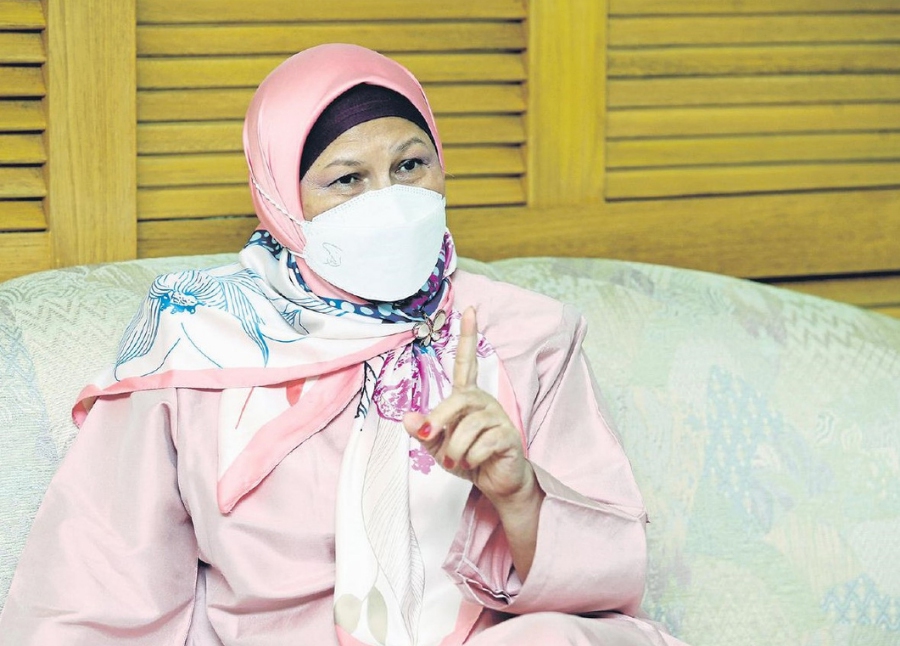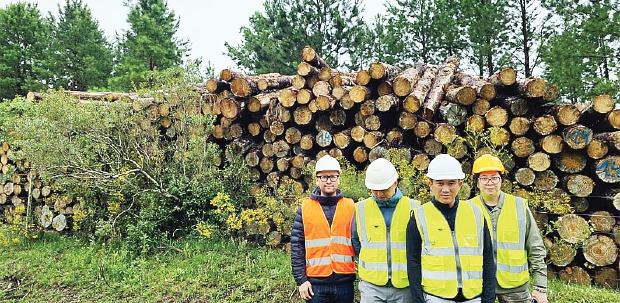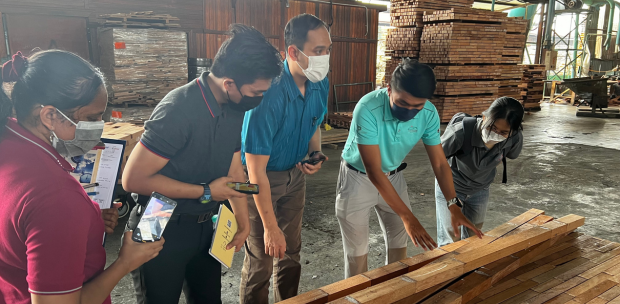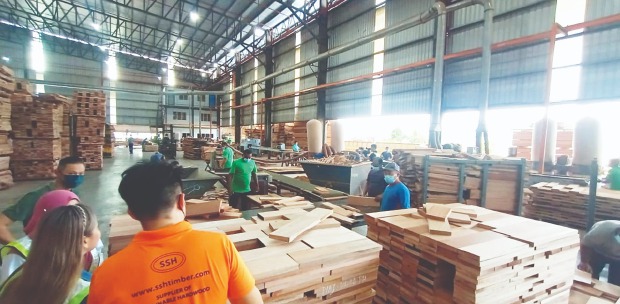THE first female chairperson of the Malaysian Timber Council (MTC) is on a mission to persuade young Malaysians that the timber sector is not a "sunset business".
Norrida Yusoff wants more young people to lead and convert the timber sector into an innovation-led industry as MTC celebrates its 30th anniversary next month.
As Norrida guides the country's timber industry toward a post-Covid-19 economic rebirth in 2022, this will be one of her top priorities.
"In June this year, the timber industry experienced daily losses of roughly RM60 million as a result of the lockdowns. The pandemic caused supply chain and cashflow management interruptions, as well as increases in freight charges, raw material costs and container shipment expenses.
"Due to port congestion and the lack of empty containers, timber deliveries from and to Malaysia were delayed."
MTC launched the Export Assistance Programme (EAP) in March 2021 to help Malaysian wood exporters, particularly small and medium-sized firms (SMEs), cover some of the costs of ocean freight.
"A total of RM1 million has been set aside for this project. According to the New Straits Times, disbursements were made to 104 businesses covering 512 containers as of October 31."
Nonetheless, Norrida is optimistic that the timber market will revive quickly in 2022, especially now that the country's adult population has been fully vaccinated.
"Through the industrial vaccination initiative, MTC also earmarked RM1.3 million to hasten mass immunisation among workers in the timber-based sector.
"A vaccination centre was also established in Olak Lempit, Banting, Selangor, where 10,005 workers were successfully immunised in August and September 2021," she said.
Malaysian timber goods are widely sought-after, according to Norrida, because of improved supply reliability, superior quality and the availability of sustainable and certified timber products.
She said that the industry has made an excellent transformation into a value-added product exporter, as seen by the country's timber export success.
Malaysian timber and timber products are widely sought-after and are exported to over 170 countries worldwide.
"From exports of predominantly upstream timber products valued at RM10.5 billion in 1992, exports have doubled to RM22.02 billion in 2020, with downstream timber products contributing more than 65.5 per cent to the total exports," she said. Malaysia's top competitors in terms of timber exports, she noted, are now Vietnam, Indonesia and China.
Norrida feels that innovation is the key to keeping Malaysia's timber business competitive and ahead of its rivals.
"We have been encouraging our timber entrepreneurs to move from being original equipment manufacturers to original design manufacturers and original brand manufacturers for higher export returns."

MTC has created programmes such as the TIMB3R Design Incubator Program, TimbeReality and the Malaysian Timber Industry Awards, among others, to encourage the timber industry to produce higher-value products that necessitate a greater level of expertise.
"We are also pushing the industry to adopt and adapt technologies related to the Fourth Industrial Revolution (IR4.0) through automation, digital and green technology acquisitions to purchase or retrofit machinery to achieve a higher level of automation.
"MTC has also established the Engineer Placement and Internship Programme (EPIP) to facilitate SMEs and non-SMEs in employing professional technical personnel such as engineers to develop their careers in the timber industry," she said.
MTC is to promote the timber industry to embrace circular economy and sustainability by developing oil palm trunk goods and collaborating on product design with the Forest Research Institute Malaysia (FRIM) in 2022, according to Norrida.
MTC wants to establish Environmental, Governance and Social (ESG) norms for the wood business and increase replanting efforts.
"MTC will also explore ways to increase the supply of certified rubberwood in the domestic market with the cooperation of the Malaysian Timber Certification Council (MTCC), while complying with the country's regulations and rising pressure from international markets.
"We will also reach out to prison inmates on parole as part of its On Job Training (OJT) programme to supplement manpower shortages in the timber industry."
MTC will work with local specifiers and authorities to encourage the use of wood, as well as establish a one-stop information portal on the industry's licensing and permit needs.
"We also plan to expand into new markets, such as South America, Africa, Southeast Asia and Central Asia, while maintaining our presence in critical markets like the United States, Europe, China and the Middle East," she said.
Norrida expressed her gratitude for being entrusted with leading MTC despite the fact that the timber sector was a new subject of interest for her.
On a personal note, Norrida said she has grown accustomed to "being the sole female in meeting rooms" throughout her working life when questioned about her perspective on heading a male-dominated sector.
"Previously, I worked in the telecommunication industry, which was also a male-skewed industry. So, I believe women should never feel intimidated to start their careers in a male-dominated industry.
"The timber industry does have women holding top management positions and I hope that the few positive examples seen in the industry will encourage more females to join the industry," she added.
This article was originally written by Dhesegaan Bala Krishnan.





